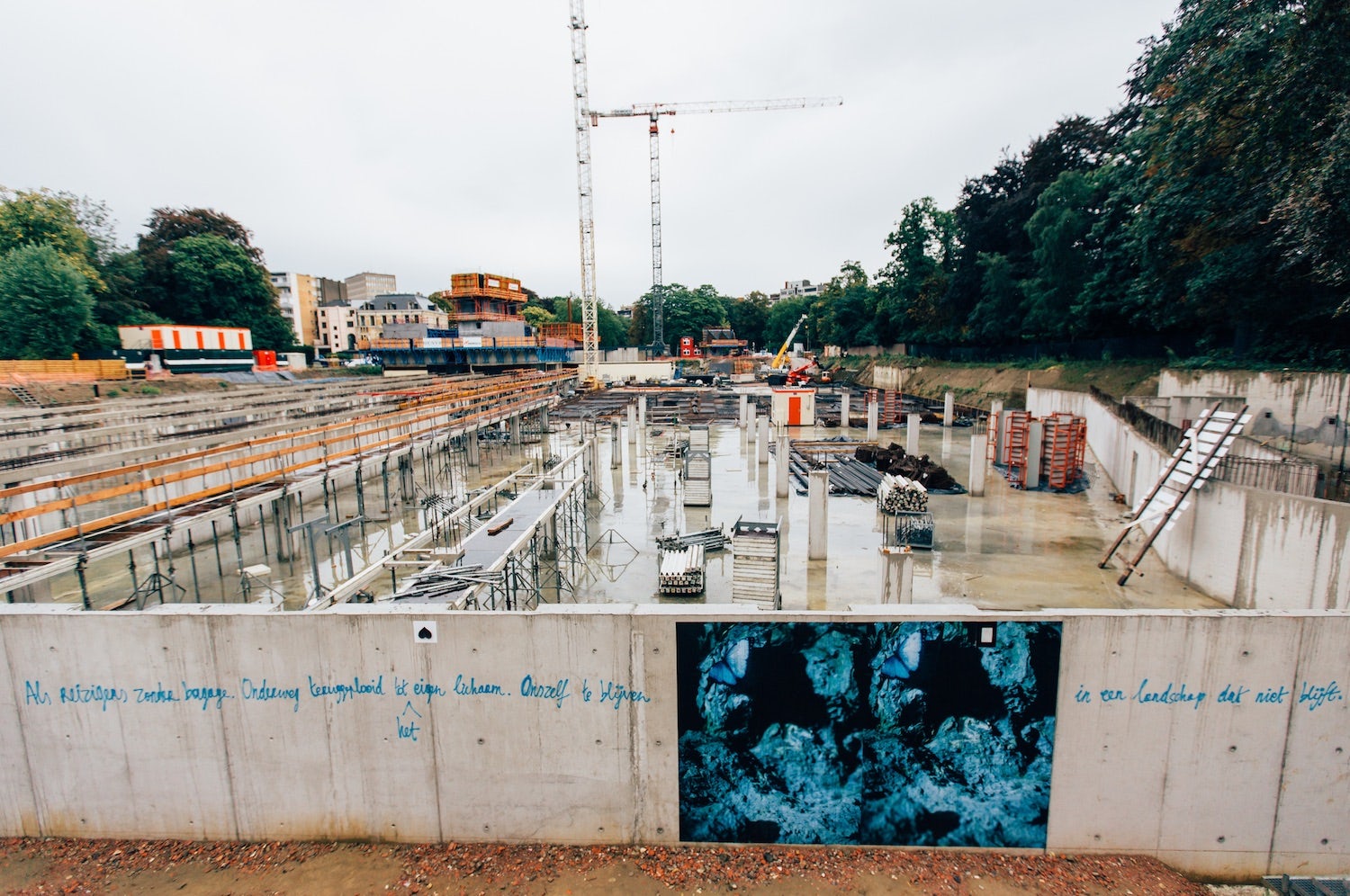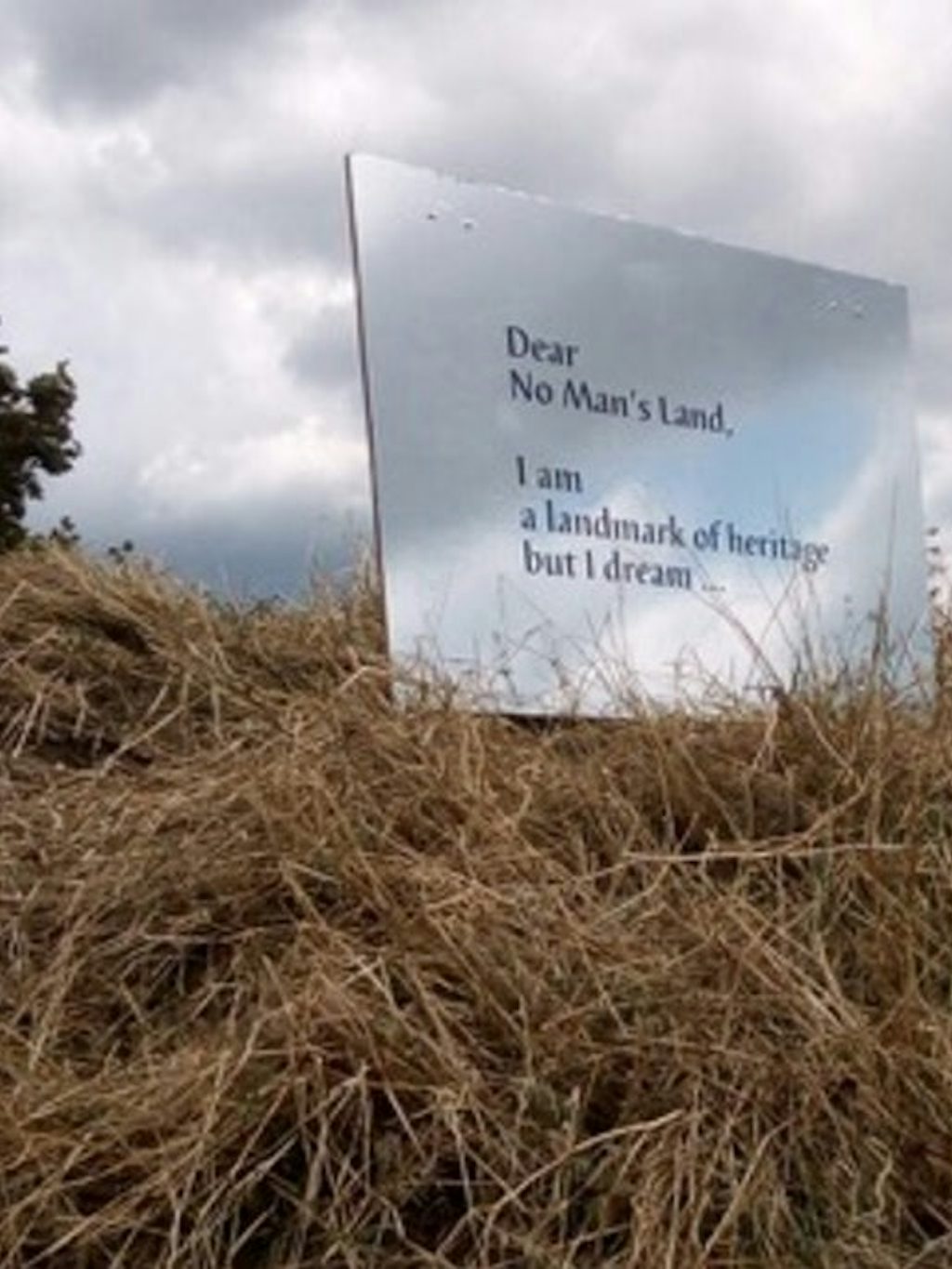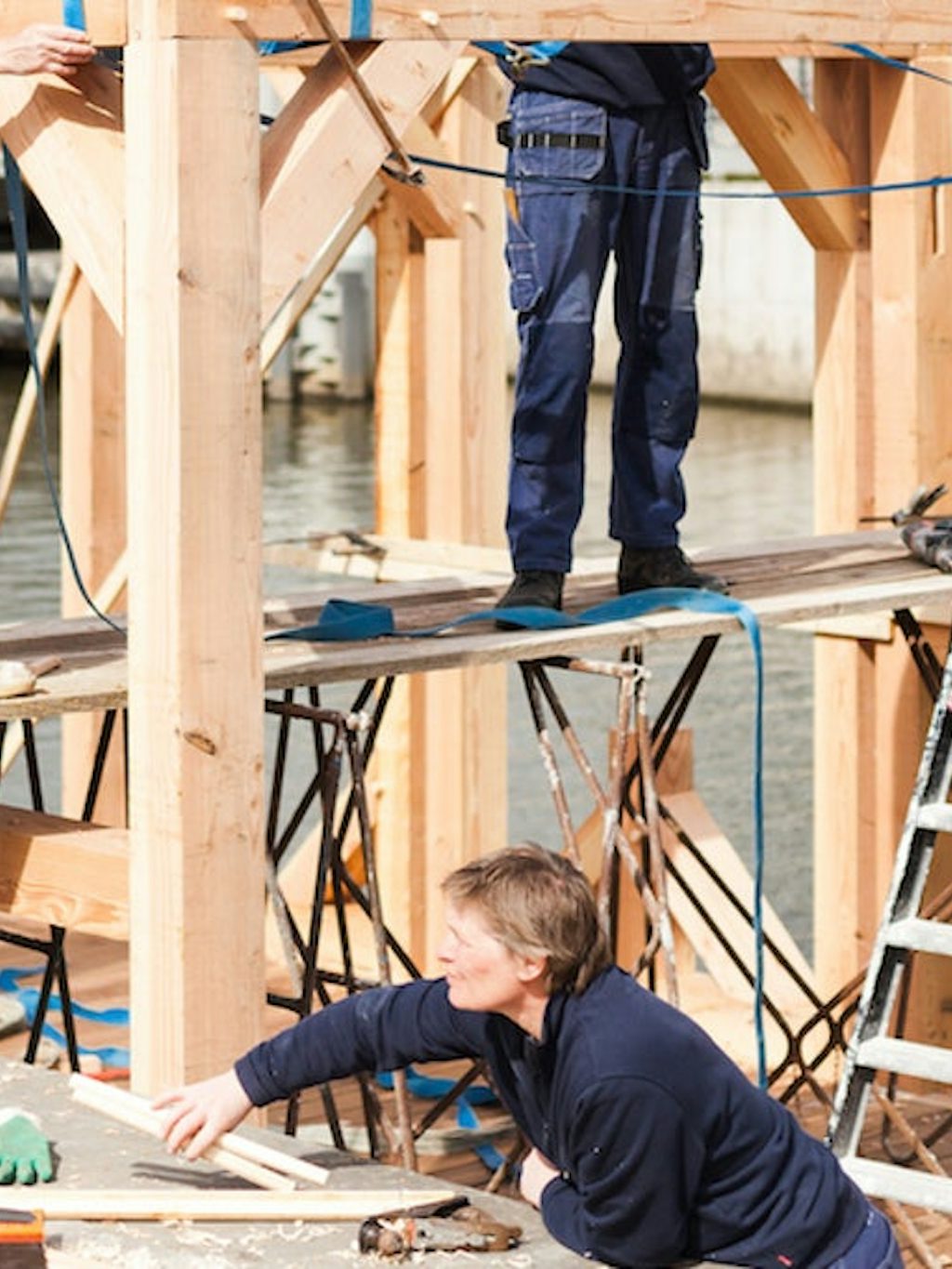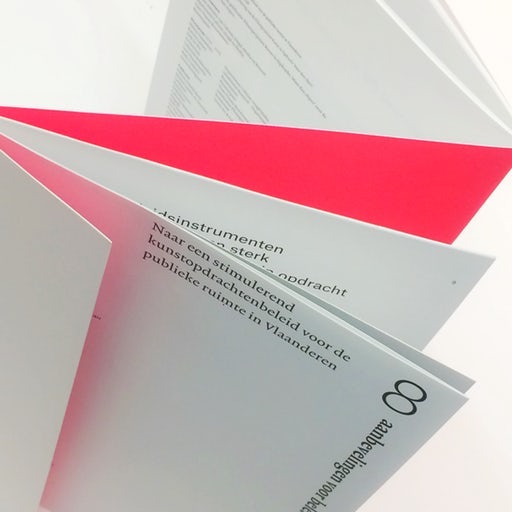Art in the public space: eight recommendations regarding policy and practice

Kunst in Opdracht: provinciehuis Antwerpen, Nico Dockx en Sarah De Wilde (c) Niels Donckers
Flanders Art Institute was part of a four year project about commissioned art. The goal was to investigate what art can do in public space in the 21st century. During the realisation of five pilot projects, a lot of insights were collected. These are now formulated in a publication with eight recommendations for policymakers and principals.
More than an object
In January 2014 the Flemish Government issued a call for pilot projects regarding commissioned art. Under the motto ‘More than an object’, principals and artists were challenged to develop new, contemporary ideas about art commissioned for the public space.
The selection of projects and relevant accompaniment was made possible thanks to a steering committee composed of representatives of the initiators (Flanders Arts Institute, Team Flemish Government Architect, and the Department of Culture, Youth and Media) and three external experts.


Professional support
The steering committee selected five principals, who pledged to thoroughly analyse and question their own position and motivation as principals but also the context to which they wanted to connect their commission, and to develop a vision around it. In their choice of artists, the principals paid attention to the complexity of the public space, to the many social issues that intersect there and to the diversity of contemporary art forms.
Each principal was eager to make use of the professional support provided by experts and mediators. By documenting and sharing all the steps in the realization process of the five selected pilot projects, the parties involved also grew their knowledge.
We need a contemporary approach to art in public space
The four-year guidance effort reinforced the steering committee’s conviction that art can contribute to the quality of our surroundings. Artistic interventions can imbue the public space with meaning and also let citizens who never or rarely come into contact with art at their own initiative share in the experience of art.
The development of a contemporary vision of and approach to art in the public space is therefore of interest to everyone. The permanent shaping of a vision and development of a practice are also necessary, given the changes occurring at the level of society and housing, the transitions in terms of energy and the climate, and the transformations of the public domain. The Flemish and local administrations, together with actors such as experts, mediators and artists, bear a particular responsibility, beyond the terms of office.
Video: more on the pilot projects in Genk and Aalst
We are trying to show content from YouTube.
Kunsten.be only uses minimal cookies. To view content by a third party website, this site can place additional cookies. By continuing to browse you are agreeing to the use of those third party cookies.
Read more about our privacy policy?
We are trying to show content from YouTube.
Kunsten.be only uses minimal cookies. To view content by a third party website, this site can place additional cookies. By continuing to browse you are agreeing to the use of those third party cookies.
Read more about our privacy policy?
Publication formulates eight recommendations
Based on the rich experience of the five pilot projects, the steering committee wishes to formulate eight recommendations for policymakers and principals. It is expected that these recommendations will lead, at different levels and over both the short and long term, to concrete actions for and through policy and practice. The recognition of the social importance of art in the public space in which all citizens move around daily supposes a professional approach to art commissions and a stimulating art-commission policy.
The eight recommendations are listed briefly below.
Recommendations regarding policy
- Recognize the value of art for the public space in Flanders
- Encourage principals to think outside the box and to work in a multidisciplinary perspective on social questions in the public space
- Share and exchange knowledge about commissioned art in the public space through (inter)national collaborations that transcend their policy domain and by facilitating a knowledge network
- Invest in policy instruments for the support of a strong professional framework for commissioned art in the public space
Recommendations regarding practice
- Recognize the complexity of (art in) the public space
- Custom-made work and responsibility as keys for a successful artistic commission
- Make use of the potential of art and of artists in a commission context on the basis of a clear motivation
- Call on experts and remain in charge of the interaction of various roles
Read the extensive versions in the publication that you can download below (only available in Dutch).



